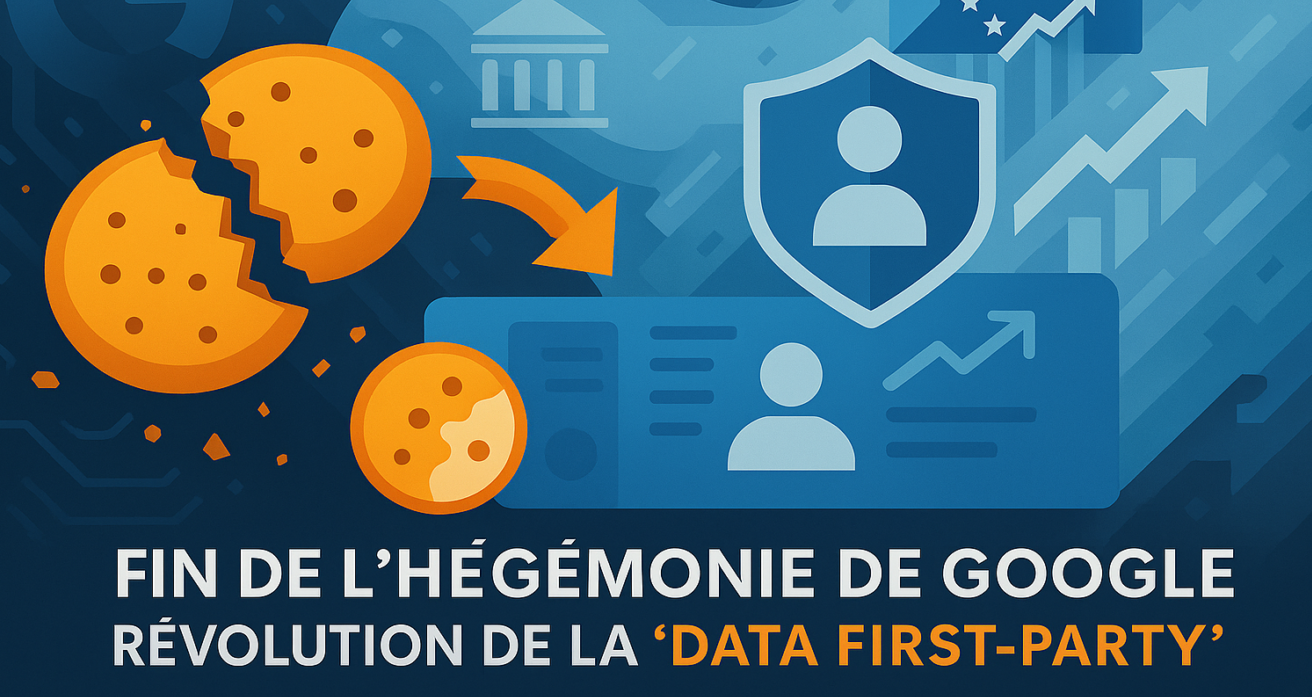Nos actus
Cookies tiers : le grand retour (ou pas) ? Pourquoi la data first-party reste plus que jamais essentielle
6 mai 2025
Cinq ans d’annonces, de volte-face, de promesses, de prototypes... pour finalement en revenir au point de départ. C’est ce que…

Mesure drive-to-store : un ROI web mobile inédit grâce à l’identifiant déterministe
29 avril 2025
Pour une campagne automobile, 366 a décidé de solliciter Smart Traffik et First-id pour mesurer l’efficacité des campagnes publicitaires en…

Repenser le ciblage publicitaire : partenariat entre First-id et Implcit
28 avril 2025
First-id et Implcit s’associent pour proposer une alternative européenne forte et innovante dans un marché publicitaire en pleine mutation. Face…

Avec ou sans cookie tiers : comment adresser +50% des internautes ?
24 avril 2025
Dans un environnement digitale fragmenté, les stratégies marketing sont mises à l'épreuve. First-id a participé à un webinaire organisé par…

First-id: identifiant déterministe N° 1 en FR selon Pubstack
10 avril 2025
Le marché de la publicité programmatique traverse une période de profondes mutations en France. Selon la dernière étude publiée par…

Jacadi révolutionne sa stratégie e-commerce : +43% de conversions grâce à First-id !
6 mars 2025
Alors que la disparition des cookies tiers transforme en profondeur le paysage du marketing digital, les annonceurs doivent repenser leurs…

First-id : La clé pour aider les éditeurs à exploiter tout le potentiel de leurs 1st Party Data
17 février 2025
Dans un écosystème digital où la fin des cookies tiers transforme les stratégies d'activation publicitaire, la réconciliation et la valorisation…

🇧🇪 IPM Advertising adopte First-id !
3 février 2025
IPM Advertising adopte First-id : une révolution pour l’identification publicitaire en Belgique Dans un paysage numérique en pleine mutation, où…

First-id au PMAddressability25 : Vers un Écosystème Publicitaire Sans Frontières
30 janvier 2025
Le 30 janvier, David Folgueira, CEO & co-fondateur de First-id, et Javier Plana, collaborateur de First-id en Espagne, ont pris…

Où est passée votre audience” – First-id x Axeptio
7 janvier 2025
“Où est passée votre audience ? Les meilleures pratiques de l'adressabilité, pour retrouver vos utilisateurs “ C’est la thématique de…

First-id brille aux Ratecard Stars et Minted Awards : Une Révolution en Data Marketing
6 décembre 2024
En 2024, le projet Decentriq et First-id, réalisé en collaboration avec Pierre Fabre et Publicis Media, a marqué un tournant…

First-id récompensé au MINTED AWARDS 2024
5 décembre 2024
Le jeudi 5 décembre Minted dévoilait les lauréats de la troisième édition de ses Adtech Awards, ces prix qui veulent…













